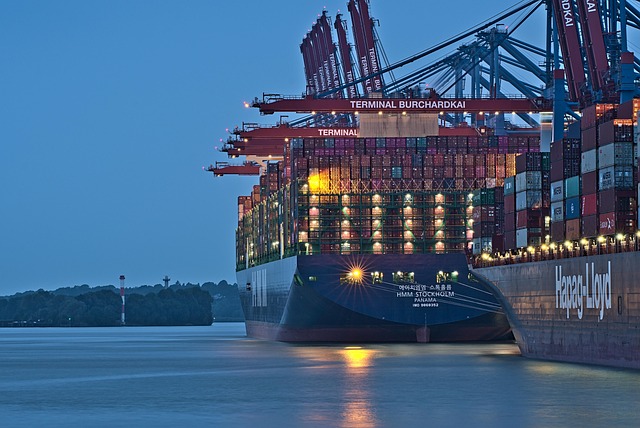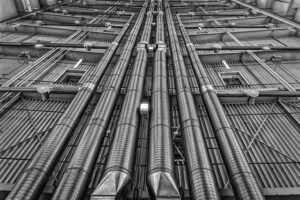Accurately Identify 50 kW Combi Boiler Models: Techniques & Challenges
50 kW combi boilers, efficient and versatile for large properties, offer space heating and hot water…….

50 kW combi boilers, efficient and versatile for large properties, offer space heating and hot water with natural gas or LPG power. Entity recognition challenges arise from diverse market offerings, requiring sophisticated algorithms to interpret product data accurately. Advanced techniques, including barcode scanning and machine learning, ensure correct model identification based on performance indicators like hot water flow rates and central heating capacities. Accurate 50 kW combi boiler identification aids in energy-efficient decisions, promoting consumer choices for high-output boilers with advanced features such as ErP A ratings.
Entity recognition plays a pivotal role in identifying specific products, such as 50 kW combi boilers. This article delves into the intricacies of recognizing 50 kW combi boiler model numbers, highlighting key challenges and advanced techniques employed for accurate identification. We explore the current landscape, discuss past limitations, and outline future directions to enhance this critical process within the heating industry, focusing on the unique characteristics of 50 kW combi boilers.
- Understanding 50 kW Combi Boiler Models
- Challenges in Entity Recognition for Boilers
- Techniques for Accurate Model Identification
- Implications and Future Directions
Understanding 50 kW Combi Boiler Models

In the realm of heating solutions, 50 kW combi boilers stand out as versatile and powerful systems tailored for large properties with multiple bathrooms. These high-output boilers efficiently meet both space heating and hot water demands, making them a popular choice for modern homes and commercial spaces alike. Combi boilers, by their nature, offer significant advantages in terms of energy efficiency and cost savings, especially when paired with condensing technology that leverages waste heat from condensation processes.
Whether powered by natural gas or LPG, these energy-efficient appliances are designed to optimize performance while minimizing environmental impact. The hot water flow rate and central heating capacity of 50 kW combi boilers ensure consistent comfort throughout the property, making them ideal for spaces requiring ample warmth and hot water supply. Moreover, many modern models boast ErP A ratings, reflecting their commitment to sustainability and exceptional operational efficiency.
Challenges in Entity Recognition for Boilers

Entity recognition tasks for 50 kW combi boilers present unique challenges due to the diverse and often complex models available in the market. From natural gas fired to LPG compatible, each boiler has its own set of features, specifications, and variants, making accurate identification a demanding task. Moreover, distinguishing between similar models with slight variations or understanding different configurations designed for specific applications—like those tailored for large property heating with multiple bathrooms—requires sophisticated algorithms that can interpret subtle differences in product literature, user manuals, and technical documentation.
The complexity is further amplified by the need to consider energy efficiency standards, such as ErP A ratings, and advanced technologies like condensing technology, which impact both performance and environmental sustainability. Additionally, tracking variations in hot water flow rates and central heating capacities across models necessitates precise pattern recognition capabilities to ensure the system accurately identifies the correct boiler model based on provided data, be it serial numbers, part numbers, or other identifying characteristics.
Techniques for Accurate Model Identification

Accurate model identification for 50 kW combi boilers involves a combination of advanced techniques. One key method is employing barcode or serial number scanning, which captures critical data points directly from the boiler’s physical labels. This ensures minimal human error and facilitates quick matching against manufacturer databases. Additionally, utilizing machine learning algorithms can greatly enhance precision. These AI-driven systems are trained on vast datasets to recognize patterns in model numbers, even when dealing with varying fonts or formatting.
For larger properties with multiple bathrooms, high output boilers like these become essential for meeting peak demand. Condensing technology, whether powered by natural gas or LPG, not only contributes to energy efficiency but also plays a crucial role in accurate identification. The hot water flow rate and central heating capacity of these units are key performance indicators that can be used to cross-reference and verify model numbers, especially when considering the wide range of ErP A-rated options available on the market today.
Implications and Future Directions

The ability to accurately identify 50 kW combi boiler models opens up a world of possibilities for both consumers and industry professionals. By recognizing specific model numbers, homeowners can make informed decisions about their central heating systems, especially when considering a replacement or upgrade, focusing on high output boilers suitable for large properties with multiple bathrooms. This recognition also facilitates the promotion of energy-efficient solutions, such as condensing technology, which significantly reduces fuel consumption and carbon emissions.
Looking ahead, future developments in entity recognition could lead to more sophisticated systems that not only identify boiler models but also provide insights into performance metrics like hot water flow rate and central heating capacity. Moreover, with expanding compatibilities, including natural gas fired and LPG options, the technology might enhance consumer choices while ensuring they access the latest innovations, such as ErP A-rated high-efficiency boilers.
Entity recognition plays a pivotal role in identifying 50 kW combi boiler model numbers, streamlining maintenance and replacement processes. Overcoming challenges through advanced techniques ensures accurate model distinction. As technology advances, continuous research in this area will further enhance efficiency, benefiting both professionals and homeowners dealing with these vital heating systems. For instance, implementing machine learning models specialized for boiler recognition can revolutionize the industry, making 50 kW combi boiler management more precise and accessible.







